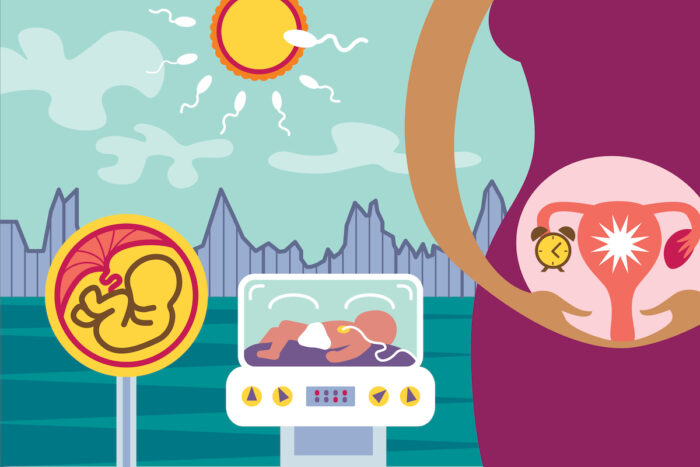WashU Medicine to offer reproductive sciences master’s program
Human reproductive health focus of new training opportunity
 Eric Young
Eric YoungWashU Medicine is launching a new master's program in reproductive sciences. Students will complete a thesis project in one of WashU Medicine’s reproductive biology labs.
Washington University School of Medicine in St. Louis is offering a new master’s program in reproductive sciences, focused on topics ranging from fertility and fetal development to reproductive aging and menopause, among other subjects.
The program is accepting applications for its inaugural cohort through Dec. 30. Classes will begin in fall 2025.
“Human reproductive health is intimately linked to overall health,” said Sarah England, PhD, the senior faculty adviser for the new program and director of the Center for Reproductive Health Sciences at WashU Medicine. “To understand the biological processes of the reproductive system means understanding how the body works, and this new program is a pipeline for developing future leaders who can advance reproductive science and medicine.”
The new program will be positioned within the Center for Reproductive Health Sciences in the Department of Obstetrics & Gynecology and will support WashU Medicine’s mission to advance human health by better understanding and improving reproductive health.
Students will rotate through three laboratories before joining one to conduct a thesis project. They can pick any laboratory in the reproductive sciences field at WashU, including one of the 11 laboratories within the Center for Reproductive Health Sciences. Students can study uterine contractions, preterm birth, reproductive aging, sperm biology, maternal-fetal immunobiology, and gynecologic cancers, among other research areas.
“We have a rich research program that spans a wide breadth of disciplines and innovative approaches, aiming to solve a broad spectrum of medical and scientific challenges in reproductive medicine,” said Erin Reinl, PhD, director of the new program. “Students also will be exposed to a WashU’s collaborative culture, working with researchers across different disciplines and departments.”
The impetus for starting the master’s program was to fill a gap in the field, explained Reinl. Although there has been a growing interest among biomedical students in reproductive sciences, few opportunities exist across the U.S. for formal training. Further, there is an urgent need to train researchers who can meet the nation’s growing reproductive health-care needs.
Thus, the vision for the new program is to offer students a solid foundation of knowledge delivered through courses taught by leading WashU Medicine scientists and clinicians in the field. During the 21-month program, students will learn about human reproductive physiology, statistics and common techniques used in reproductive sciences research. They will gain fluency in reading scientific publications and become strong science communicators. Such experiences prepare the students for careers across sectors, including academia, biotechnology and public policy.
“We are training scientists who can effectively communicate about reproductive health, because the goal of this program – and a handful of similar programs around the country – is to improve reproductive health literacy in our communities to help improve human health,” said England, who is also the Alan A. and Edith L. Wolff Professor of Medicine in the Department of Obstetrics & Gynecology. “All too often, people don’t share their experiences with menstruation, miscarriages, still births, preterm births and menopause. Talking about the reproductive system is a first step in unraveling its biology and understanding how it works.”
In fall 2025, the program will open applications for a second concentration aimed at training students for the in-demand position of clinical embryologist, a medical laboratory specialist who helps people with infertility. During the 24-month clinical embryology track, students will gain hands-on skills working in an in vitro fertilization clinic at WashU Medicine. After completing the program, students will be prepared for the embryology laboratory scientist certification exam.
In addition to England and Reinl, the program’s leaders are associate program director Ali Ahmady, PhD, an associate professor of obstetrics & gynecology and lab director of the Fertility & Reproductive Medicine Center in the Division of Reproductive Endocrinology & Infertility; and division director and senior faculty adviser Kenan Omurtag, MD, an associate professor of obstetrics & gynecology.
For more information about the WashU Medicine master’s program in reproductive sciences, including how to apply for the new program, visit the program’s website.






